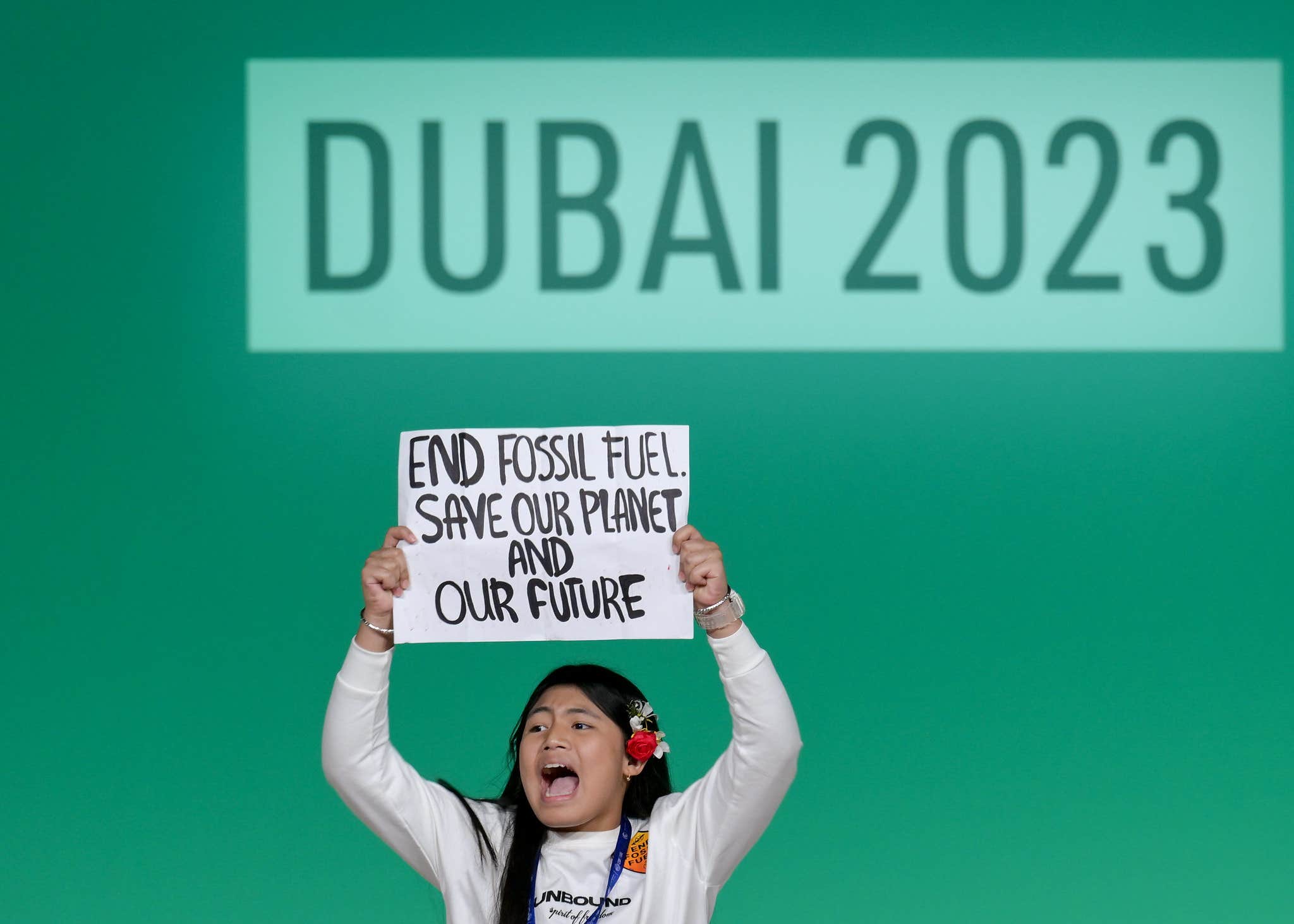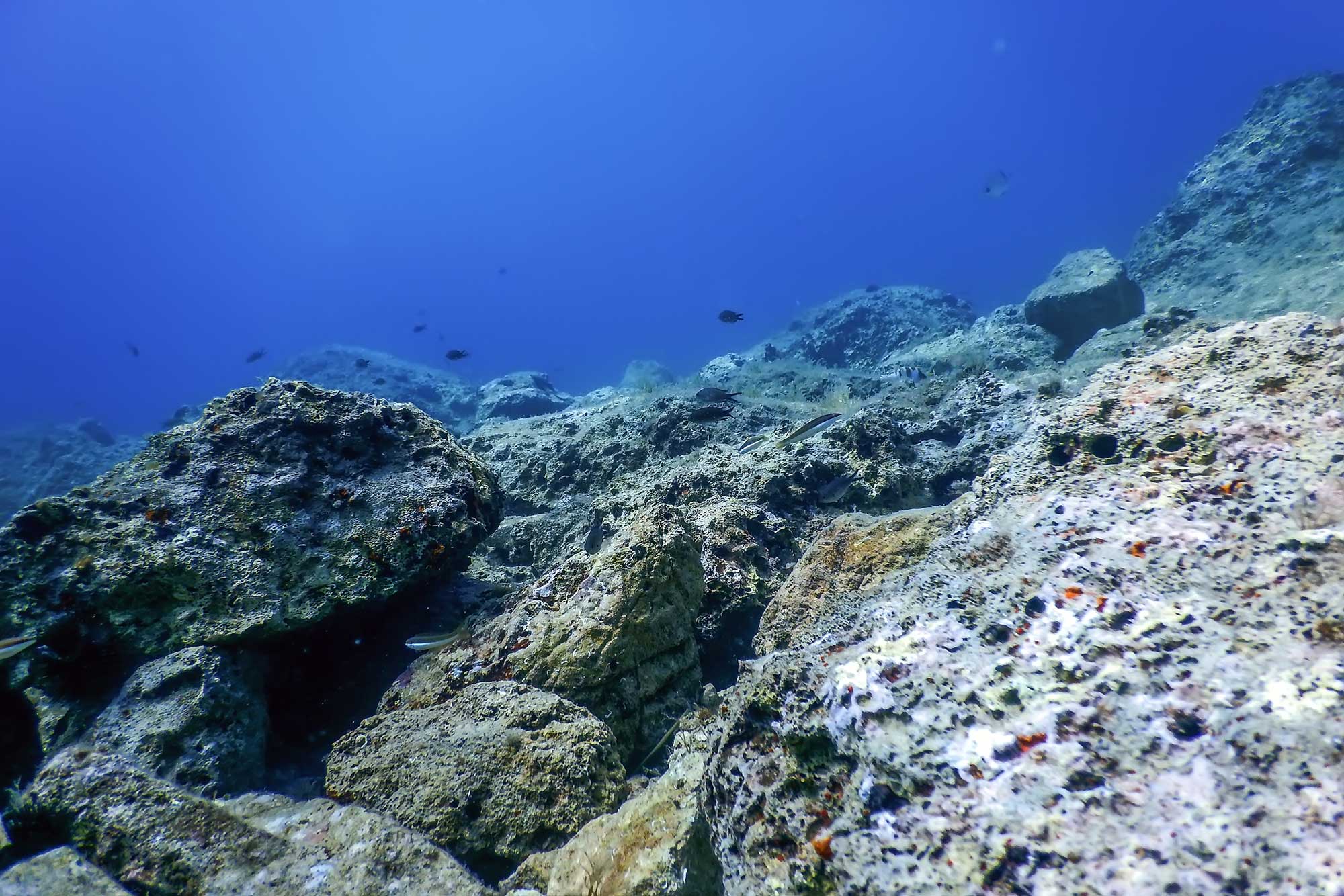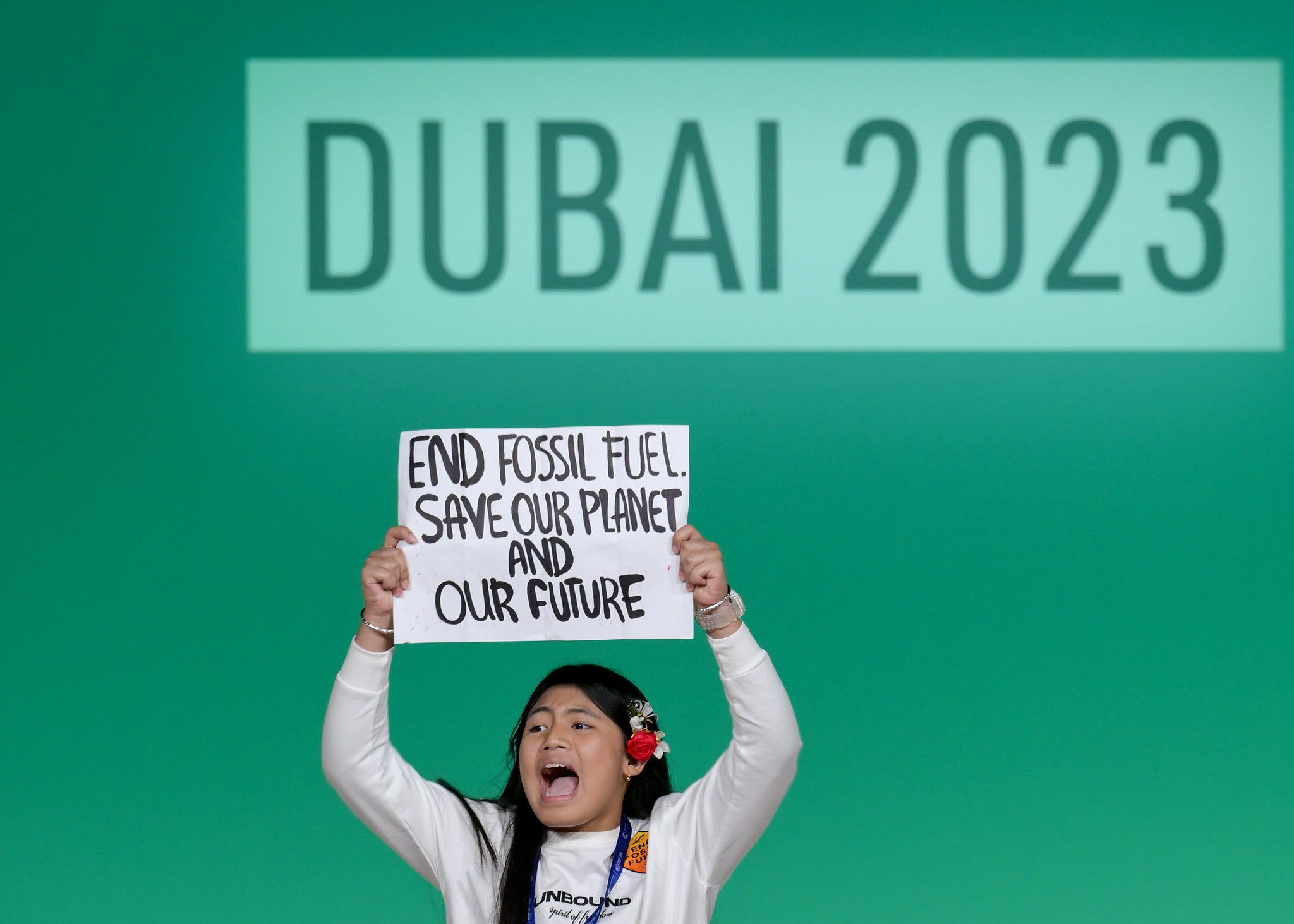Hey team, and welcome back to one5c. Our two “favorite” December parades are marching along: COP28 continues its drumbeat of posturing and climate pronouncements, while the holiday spirit sends our shoppiest instincts twirling into overdrive. As always: We gotchu—including a couple doses of good Earth news that’ve got zip to do with what’s (not?) getting done in Dubai before things wrap up tomorrow.
If you’re liking our recommendations—reading or otherwise—please share us with someone wishing for an end to the climate emergency this Christmas. —Corinne
WHAT WE’RE INTO THIS WEEK
By Corinne Iozzio & Sara Kiley Watson

A protestor onstage at COP28 in Dubai. UN Climate Change COP28/Anthony Fleyhan
Greenwatch
A ‘phase-down’ ain’t gonna do it
A lot of the drama at COP28 boils down to just a few words. The most key is the difference between a phaseout and a phase-down of fossil fuels. The chasm between the terms is vast: A “phaseout” means that the world will stop burning fossil fuels at some point. A “phase-down” means we simply will use less fossil fuels. Considering fossil fuel-related greenhouse gas emissions are about to hit an all-time high, using an undefined “lesser” amount is only pretend progress. You can also file “phase-down” alongside another washy term: unabated. This bit of trickery means taking no action to remove greenhouse gas emissions from fossil fuels; oil and gas companies using carbon capture to wash away their dirty business gets them credit as “abating.” Even if that word finds its way into an agreement to “phase out all unabated fossil fuels,” it leaves the door wide open to keep burning.
Retail therapy
The Earth-friendly eater’s gift guide
In the waste-making time of year, you know we’re all about doing whatever we reasonably can to avoid bringing more stuff into the world. For consumables, though, we make an exception. (Secondhand food? No, thanks!) Over at Cool Beans, we rounded up our favorite edible delectables—that just happen to be gentler on the planet than your typical holiday fare. From heirloom popcorn to a completely plant-based peppermint bark, these are goodies you can feel great about giving, or eating.
Good read
La vie zéro déchet
Shrinking how much junk we throw away is, in some ways, a chicken-and-egg problem: Do people need to start the revolution and have policy follow, or is it vice versa? A pair of cities in France show there are benefits in either approach. In the burg of Roubaix, a postindustrial spot near Lille, a 2015 pilot project to teach civilians to live waste-free has now spread to 800 families, some of whom now have impeccable food-saving strategies and home composting systems. Further south, Saint-Denis-de-Pile is dabbling in various “contextual change” schemes; city rules make it harder, and more costly, to throw away waste. Our buds at Grist have the full scoop on how these schemes are helping to make going waste-free easy.
Cause for optimism
The first state bids methane adieu
In a nationwide first, Massachusetts regulators have said “no” to would-be green sources of heat as replacements for natural gas. The industry argued that it could use “renewable natural gas” (aka biomethane) or hydrogen to keep residents toasty. The Department of Public Utilities, however, said they should consider electric heating instead. Nearly a dozen other states are hearing similar arguments, reports Inside Climate News. The Bay State ruling requires the utility companies to submit clean-energy plans starting in 2025.
Mic-drop climate stat

The size of India’s newest solar project. The farm—which at its complete size will be twice the footprint of Washington, D.C.—will be the world’s largest renewable installation and visible from space.
Who’s going to save the world
The rep raising a flag on deep-sea mining
By Glorie Martinez

Mining interests are eyeing minerals on the ocean floor. Allexxandar/Shutterstock
The Problem
Minerals on the ocean floor are an essential component of green technologies like solar panels, wind turbines, and EV batteries. Demand for things like cobalt and lithium is projected to surge by up to 600% in the coming decades, and many companies are eyeing them at the bottom of the sea. Commercial interest in mining the ocean floor has been around for years, but advances in robotic vehicles are getting closer to turning it into reality. Some countries and mining companies plan to start operations in the next few years.
Scientists have limited knowledge about the ocean floor—let alone how mining might affect those ecosystems. There’s currently no federal or international guidance on the matter, so California, Oregon, and Washington have implemented bans on deep-sea mining in state waters until the risks can be better understood. Hawaii is considering a similar measure.
The Fixer
Congressman Ed Case is the incumbent representative for Hawaii’s 1st Congressional District, encompassing Honolulu and its suburbs. As an advocate for the Aloha State, Case has consistently championed laws to safeguard the ocean—particularly by raising the flag over deep-sea mining.
👉 See who else is saving the world 👈
The Fix
The Pacific, including areas near Hawaii, boasts valuable deposits that attract potential investors. In response to the growing interest in digging up those resources, Case introduced the American Seabed Protection Act in July. The bill aims to halt deep-sea mining in U.S. waters—and in international waters by American companies—until its impact is fully understood and regulations to protect marine ecosystems are established.
Environmental advocates warn there could be major consequences for marine life. Heavy vehicles moving on the ocean floor might kill organisms, noise and light pollution risk disrupting feeding and reproduction patterns of deep-sea species, placing some at risk of extinction, and warm wastewater has the potential to overheat and poison marine life. Deep-sea mining also risks disturbing the ocean’s role as the world’s largest carbon sink. The big blue deep absorbs around 25% of all carbon dioxide emissions, and microorganisms also help sequester other planet-warming gases like methane.
The bill mandates studies by the National Oceanic and Atmospheric Administration and the National Academies of Science to determine the impact of mining on marine species, carbon sequestration, and communities that rely on the ocean, although the bill doesn’t include specific funding plans for the studies.

